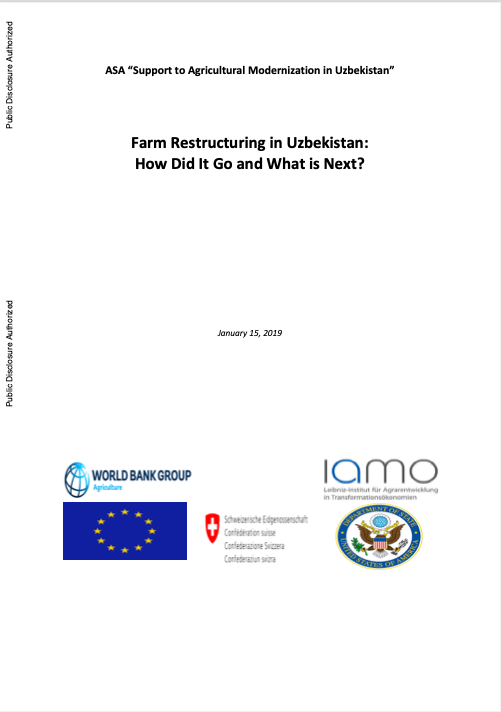Farm Restructuring in Uzbekistan: How Did It Go and What is Next?
In January 2019, Uzbekistan started a new farm restructuring1. It is said to seek to optimize the use of farmland by increasing the size of farms producing wheat and cotton, reallocating land to more efficient farmers and even clusters, and improving crop rotation options. This is not the first time that this kind of farm restructuring in Uzbekistan takes place. The country has gone through several waves of farm restructuring and land reallocations. Both these processes were administratively managed, with little reference to market or income generation opportunities.


